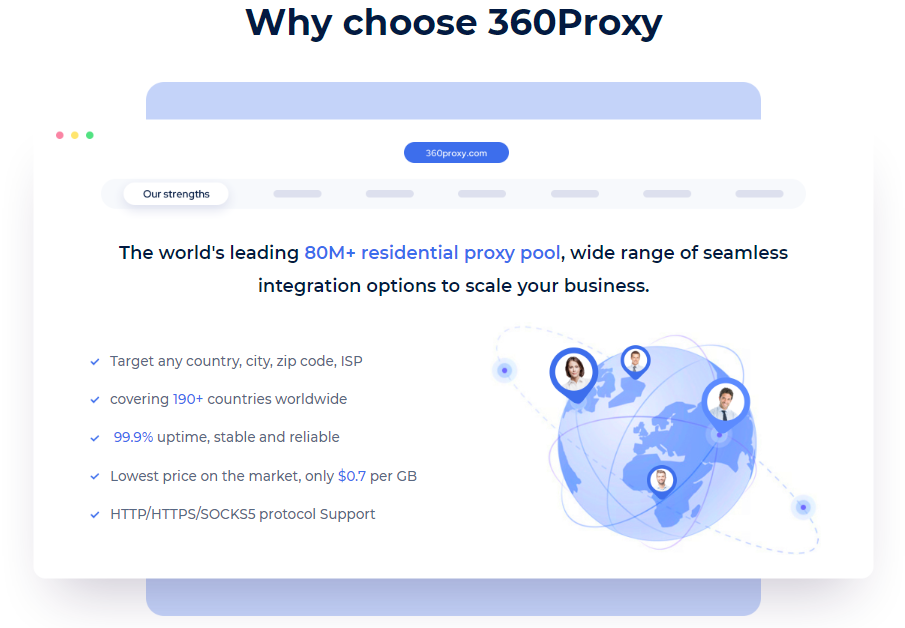Introduction
At a time when network usage is becoming more popular and the importance of digital privacy is rising, more and more users are beginning to consider using residential proxy services to protect personal privacy and cope with geo-restrictions. However, more in-depth thought and research is required when selecting and using a residential proxy, as different service providers and usage patterns may have different effects. This article will provide you with a comprehensive guide from multiple perspectives to properly select and use a residential proxy.
Learn about the different types of residential proxy services
Before choosing a residential proxy, it is important to understand the different types of residential proxy services. Some service providers may focus on high anonymity, emphasizing being anonymous and not being tracked online. Others may be more focused on speed and availability, for users who need higher network performance. Learn about the features of various residential proxy services to better meet your specific needs.
Pay attention to the service provider’s privacy policy and compliance
When choosing a residential proxy service, be sure to carefully research the provider’s privacy policy and compliance. Ensure that service providers strictly comply with relevant laws and regulations and will not misuse users’ personal information. Choose service providers that focus on privacy protection and have high compliance to ensure that your personal information is properly handled. At the same time, you can check whether the service provider has been third-party certified, which helps verify its compliance.
Consider geographical coverage of IP addresses
Different residential proxy services may have different geographical distribution of IP addresses. If you need to simulate user access from a specific region, it would be more appropriate to choose a service provider with broad geographic coverage. Make sure the IP address provided by the service provider can meet your geographical location needs and can be quickly switched when needed to ensure flexibility in geographical coverage.
Pay attention to the technical support and stability of the service provider
Technical support and service stability are very important when using a residential proxy. Choose service providers that provide technical support and maintain high stability so that you can get timely help when you encounter problems and ensure the continued availability of proxy services. At the same time, you can check whether the service provider has community support or online documentation to facilitate users to solve some common problems by themselves.
Learn about service fees and payment options
Service fees are another key consideration when choosing a residential proxy. Compare prices and service packages from different providers to make sure the service you choose fits your budget and needs. Also, understanding the payment method and whether the service provider offers a trial period or refund policy are also important considerations. Some service providers may provide different billing models, such as billing by traffic or billing by time. You can choose the most appropriate payment method according to your needs.
Test speed and performance
Before using a residential proxy, speed and performance testing is essential. By testing the proxy speeds provided by different service providers and the impact of proxies on network performance, you can better evaluate the quality of your service. Choose residential proxy services that offer fast speeds and stable performance to ensure your network experience is not compromised. At the same time, you can use some online tools or services to measure the speed and stability of the proxy to obtain objective data.
Find out whether the service provider provides IP replacement function
Some residential proxy service providers allow IP addresses to be changed periodically, which is useful for simulating multiple users or reducing the likelihood of being blocked for a certain period of time. Knowing whether the service provider provides IP replacement function and switching flexibly when needed can help improve anonymity and security. Regularly changing IP addresses can also help better cope with blocking of some websites or services and increase the flexibility of use.
In conclusion
Choosing and using a residential proxy requires careful consideration of everything from provider type, privacy policy, and geographic coverage to service fees and performance. By carefully understanding the features of different service providers and clarifying your needs, you can better choose the right residential proxy service and use it correctly to meet your online privacy and geo-unlocking needs. During use, the performance of the proxy is continuously monitored and flexibly adjusted according to actual needs to ensure that you always enjoy a safe, anonymous and high-performance network access experience. Choosing the right residential proxy service will provide you with a safer and more free experience in your online activities.
360Proxy provides 100% real residential proxy resources, covering 190+ countries and regions, and 80M+ residential IP resources. To meet the different needs of users, such as media account management, ESTY, SEO, etc., 360Proxy is a good assistant that can provide huge help!


 Username: Password
Username: Password
 Whitelist IP
Whitelist IP
 Proxy Manager
Proxy Manager
 Google Chrome Extension
Google Chrome Extension





























 Dashboard
Dashboard Sign Out
Sign Out































 USA
USA France
France Brazil
Brazil Vietnam
Vietnam Spain
Spain









